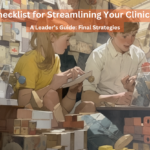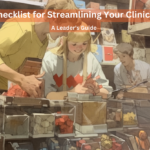For any clinical trial’s success, trust is non-negotiable. Patient advocacy groups are at the heart of this trust-building process, serving as vital connectors between pharmaceutical companies and participants. When industry leaders, from executives to managers, engage meaningfully with these groups, they’re not just ticking a box — they’re laying a foundation for transparency and trust that can propel clinical trials to new heights of success. Let’s dive into four pivotal strategies for nurturing this trust through collaboration with patient advocacy groups.

Early and Transparent Communication
Starting the conversation early with patient advocacy groups is a cornerstone of trust. Open dialogue allows pharmaceutical leaders not just to share their vision but,, to hear firsthand the concerns and hopes of patient advocates.
- Pre-Trial Workshops and Meetings: Before a trial kicks off, get together with advocacy groups. Discuss the trial’s aims, benefits, and risks, and importantly, seek their insights on design and participant experience.
- Regular Updates: Keep the lines of communication humming during the trial. Regular updates on progress, milestones, and any protocol changes are key.

Inclusive Trial Design with Patient Input
Trust flourishes when patient advocacy groups’ perspectives shape trial design. This ensures trials are not only scientifically sound but also in tune with what patients really care about.
- Patient Advisory Boards: Bring advocacy group members on board to advise on protocol design, consent processes, and trial conduct.
- Patient-Centric Endpoints: Collaborate to pinpoint trial endpoints that truly resonate with patient community priorities.

Education and Empowerment Initiatives
Informing patients and empowering them to make knowledgeable choices is a game-changer for trust-building. Here, pharmaceutical leaders can be proactive in fostering understanding and participation.
- Patient Education Programs: Team up with advocacy groups to educate potential participants about drug development, trial expectations, and their rights.
- Advocacy Training: Equip advocacy groups with the know-how on clinical trial basics, so they can effectively educate their communities.

Post-Trial Collaboration and Data Sharing
Trust doesn’t end with the trial. Continuing to engage with patient advocacy groups post-trial underscores ongoing transparency and invites them into the conversation about results.
- Results Sharing Workshops: Host sessions to discuss trial outcomes with advocacy groups. Clarify the findings’ implications and field community questions.
- Collaborative Publications: Join forces to create easy-to-understand summaries of trial results for patient-focused publications.
Engaging with patient advocacy groups goes beyond regulatory checkboxes. It’s an opportunity to deepen trust, boost transparency, and amplify drug development successes. By embracing these strategies, pharmaceutical leaders can champion a collaborative, patient-centric approach, benefiting everyone involved. After all, advancing patient care is the ultimate goal of these collaborations.









